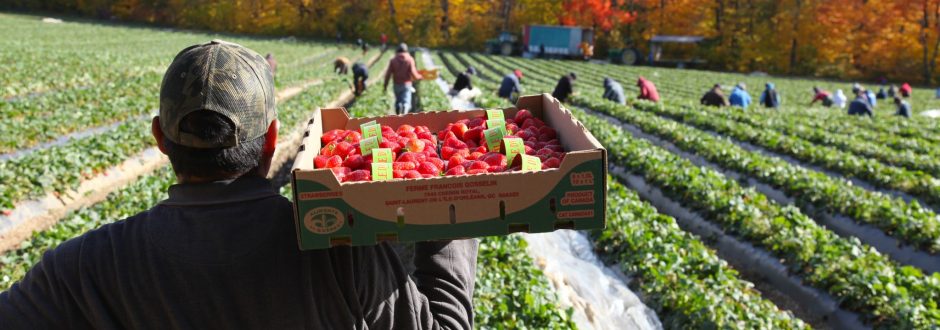Two Sisters of the Good Samaritan were part of a team of staff and volunteers from ACRATH – Australian Catholic Religious Against Trafficking in Humans – who met with senior Members of Parliament, advisers and departmental officers in Canberra during a week of advocacy recently.
The ACRATH team was in the national capital from 4 September to advocate on four key human trafficking issues:
- the need for a National Compensation Scheme for survivors of modern slavery;
- the need for a National Labour Hire Licensing Scheme;
- the welcome announcement in the 2023 Budget of a pilot scheme for an additional pathway on to the Support for Trafficked People Program (STPP); and
- the need for an independent Anti-Slavery Commissioner for Australia.
Sister Taabeia Ibouri SGS was a member of the group, sharing her experience of talking with seasonal workers from her home country of Kiribati and assisting them in a variety of ways, including helping to prepare them for life in Australia.
Also taking part in some of the meetings was ACRATH President, Sister Clare Condon SGS.
The ACRATH group met with a number of ministers, MPs and officials over the course of the week, including Attorney-General Mark Dreyfus and Minister for Employment and Workplace Relations Tony Burke.
ACRATH’s Executive Officer, Christine Carolan, said the week was “very significant and very positive in terms of outcomes”.
“It was fantastic really,” she said. “We have been doing this now for 18 years, but this time particularly, we saw movement on the things we wanted action on.
“We were even able to say ‘thank you’ and ‘congratulations’ on a couple of important initiatives the government has undertaken including the announcement that an Australian Anti-Slavery Commissioner will be appointed. We were also encouraged by Minister Burke’s positive movement on the National Labour Hire Licensing Scheme.”
While at Parliament House, the ACRATH team was able to be present in the House of Representatives to see Minister Burke introduce legislation that will require minimum wages and working conditions for workers without ongoing contracts.
“ACRATH has worked to prevent the exploitation of seasonal workers,” Christine said. “This reform will mean better working conditions for seasonal workers and real consequences for employers who withhold, or refuse, payment.”
Christine said that having Taabeia present in ministerial and departmental meetings to speak of the reality of life for seasonal workers was an enormous advantage, and Clare was also able to share her experience on international issues.
“Clare brought her experience of international issues both from the point of view of ACRATH and the Good Samaritan Sisters,” Christine said.
“And having Taabeia there meant that every time we met with people, she was able to lead with a story or experience of seasonal workers that showed she knew what the real grassroots experience was and that ACRATH was in touch with the grassroots reality; this made our presentations more powerful.”
Taabeia said she was gratified by the attention the busy Ministers gave to their presentations, including when a vote in the House of Representatives interrupted their time with Mr Burke.
“He gave us a few seconds to listen to a summary of my sharing, and then (after voting in the Chamber) he came back and joined us again. I find this both surprising and encouraging,” Taabeia said.
Taabeia, who is based in Kiribati, said she enjoyed the experience of speaking with Australian government Ministers and officials.
“I think that my involvement with seasonal workers and their families and hearing all the stories they have shared with me has been a great learning for me, helping me to see the important matters and to realise the challenges they face. So, I think they prepared me well for meeting with Ministers and departmental officers in Canberra,” she said.
“Being with ACRATH’s passionate team who are trying to bring justice and stand up for these people gave me a lot of confidence. I wasn’t really nervous during my sharing with the people we met, but just felt joy in doing it.”
Clare said while she was present in a couple of meetings with officers from the Attorney-General’s Department, she was primarily pleased to support the work of the advocacy team.
“It’s a good team,” she said. “We had 10 people, in two teams of five. Some were experienced people, who have been doing this for up to 18 years, while for others, it was a new experience, so it’s important to keep providing opportunities and training others to take over the work.
“And it was good to have Taabeia there and be able to back her up in terms of the impact in the home country of people coming to Australia as seasonal workers.
“One of the most important things around advocacy is being able to tell the human stories and I think that is what ACRATH is really becoming known for; that it brings real grassroots knowledge of the impact of government policies in this area on real people.”
This article was published in the October 2023 edition of The Good Oil.


